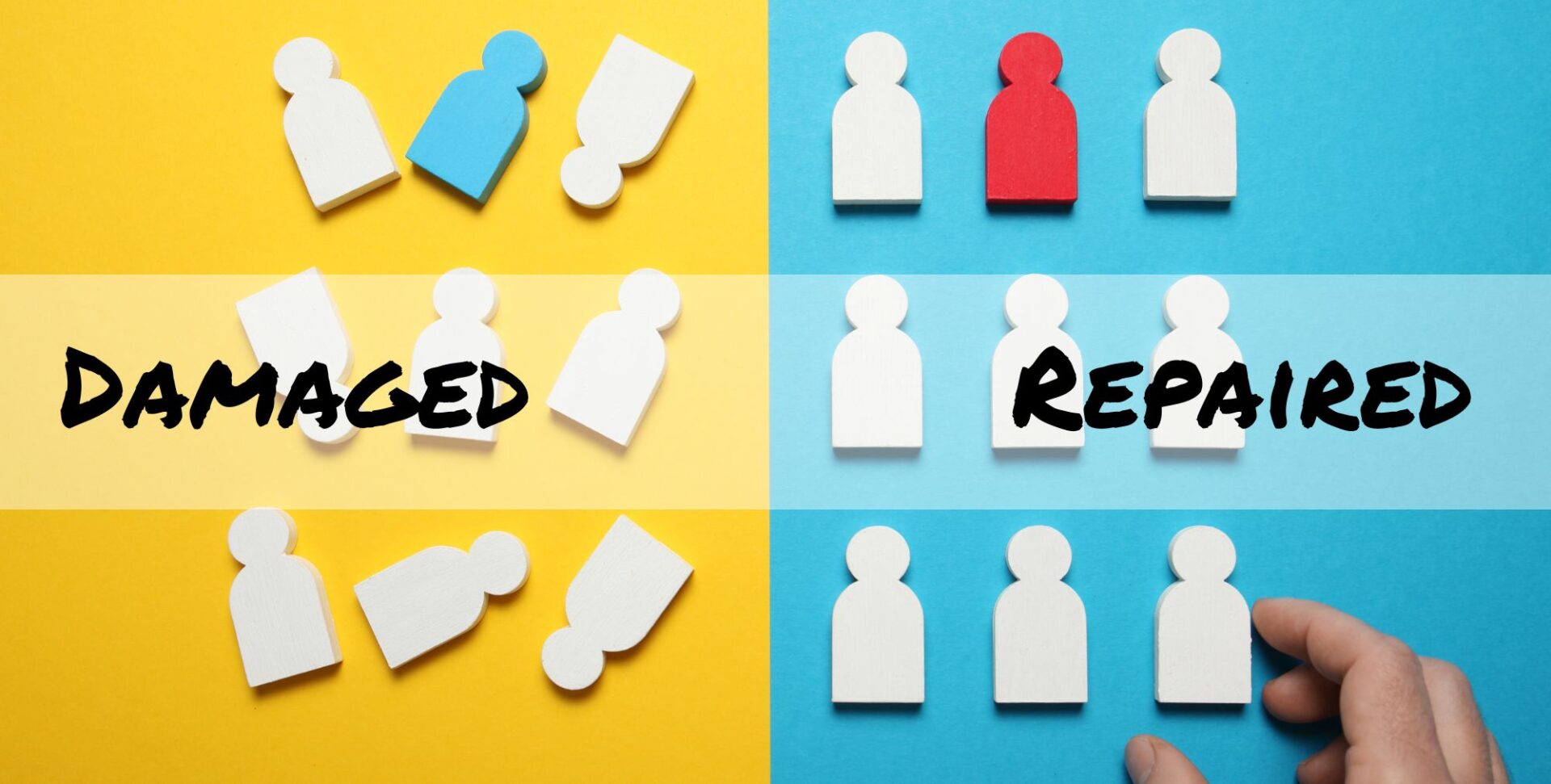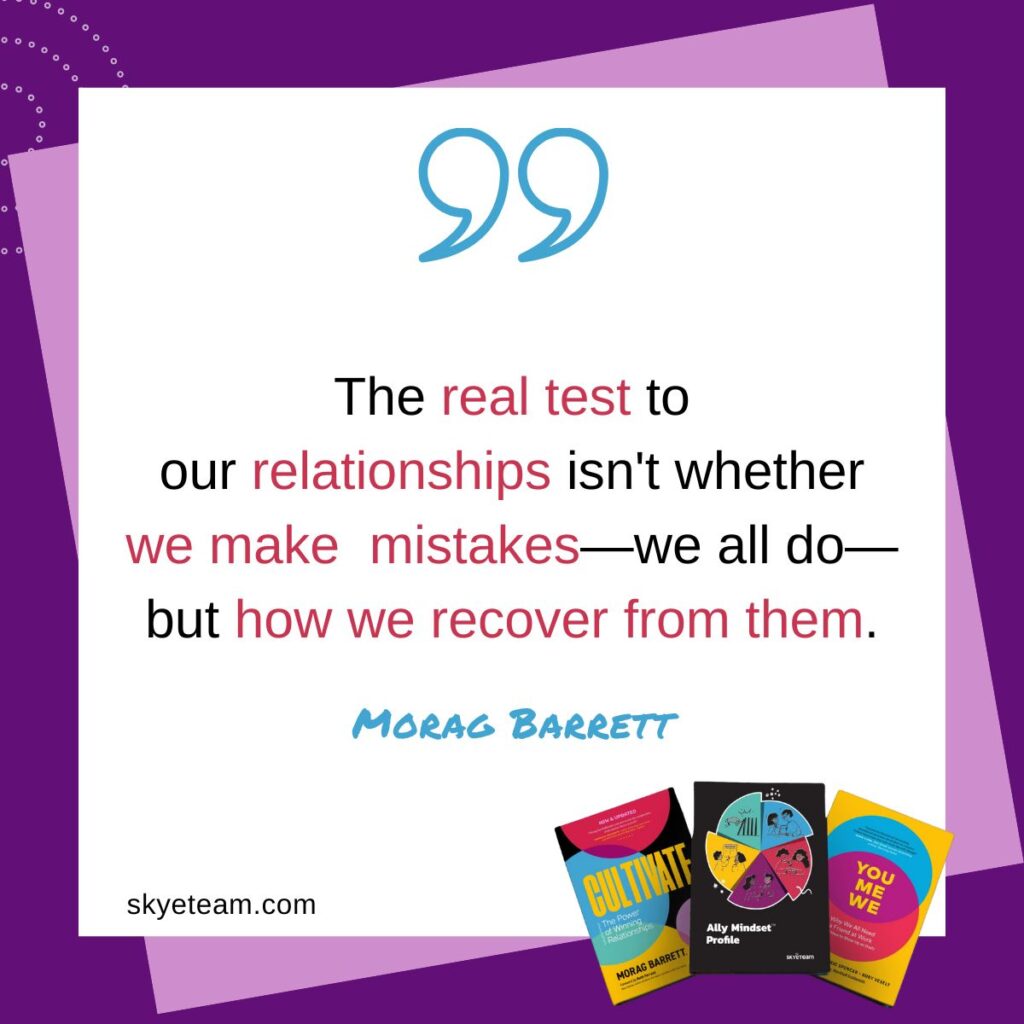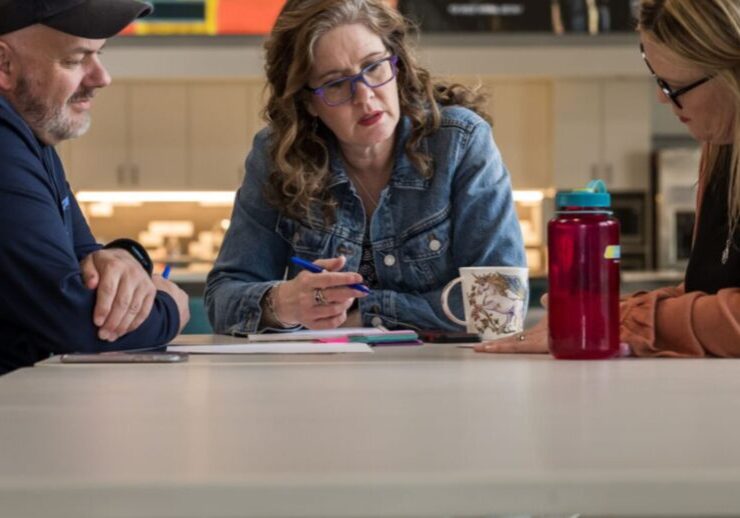How to Recover When You’ve Damaged a Relationship at Work

We all have those moments we wish we could take back, things we have said or done that have damaged a relationship at work.
Sometimes, it’s dramatic—like when I slammed my laptop shut and stormed out of a leadership meeting (not my finest hour) or the stomach-churning horror of realizing you’ve sent an email containing sensitive data to the wrong address (yes, that happened, and those hours waiting for IT to confirm it wasn’t accessible were some of the longest and slowest of my career). Or like that email fired off in frustration, with choice words that seemed justified in the red mist of anger but look very different once the haze clears. I learned that lesson the hard way, and trust me – once was enough.
But more often, seemingly harmless routines can unknowingly damage a relationship at work. Like my regular afternoon tea break I was taking with one team member early in my career. What started as a casual conversation over a cuppa became perceived as favoritism by others who felt excluded. While I simply intended to connect with my colleague, the impact created division. A quick adjustment to make these breaks more inclusive prevented what could have become a serious trust issue.
The real test of our relationships at work isn’t whether we make these mistakes—we all do—but how we recover from them.
I provide more tools and tactics for leaders who may have damaged a relationship at work or need to nurture ally relationships in my book Cultivate. The Power of Winning Relationships. Here are a few nuggets I have learned along the way.
Three Signs You’ve Damaged a Relationship:
- Changes in team dynamics (like when I noticed other team members leaving promptly at break time)
- Decreased collaboration and sharing – You find yourself being excluded from informal discussions (The “accidentally” missed calendar invites or forgotten cc emails)
- There’s a noticeable increase in formal communication where casual used to suffice (Nothing says “I don’t trust you” quite like the dreaded “as per my last email” thread)

The First 24 Hours Matter Most
- Own It Quickly – After my laptop-slamming incident, I swallowed my pride and returned to that room. No excuses, no justifications – just a genuine “I apologize for my behaviour. It was unprofessional and disruptive.”
- Make Space – When emotions run high, we need to give others room to process. After my outburst, I listened silently to the feedback as my colleagues shared how my behaviour impacted them and the team dynamic.
- Create a Path Forward – I learned to be specific: Vague promises don’t rebuild trust – concrete actions do.
The Long Game
Recovery isn’t just about the immediate aftermath. Here’s how I’ve learned to rebuild trust and a damaged relationship over time:
- Be Consistent After my meeting walkout, I had to prove my commitment daily. Even small meetings became opportunities to demonstrate emotional intelligence behaviors.
- Make Deposits into your Relationship Bank Accounts I started looking for opportunities to publicly acknowledge the contributions of the very people I’d previously clashed with. It wasn’t about making amends but genuinely recognizing their value.
- Respect the Timeline The hardest lesson? When you’ve damaged a relationship at work you don’t get to decide when someone trusts you again. After my frusrtated outburst, it took time and my consistent behaviour before those relationships were back on track.
Common Pitfalls to Avoid:
- Over-apologizing – I made this mistake after the data incident – my constant “I’m so sorry” just kept reminding everyone of the error. Apologies matter initially, then it’s your changed behavior that will transform a damaged relationship
- Expecting immediate forgiveness – Trust is rebuilt in small moments, not grand gestures.
- Trying to rush the recovery – Once you’ve damaged a relationship you can’t fast-track the repair process.
The Silver Lining
What surprised me most is that some of my strongest professional relationships today grew from those moments of recovery. That’s not to say we should damage a relationship just to we can repair it! However, there’s something powerful about working through difficulty together that builds deeper trust than never having problems at all.
Your Turn: Think about a relationship that needs repair:
- What specifically needs to be acknowledged?
- What behaviour needs to change?
- How will you show up differently tomorrow?
Remember, we’re all human. The strongest ally relationships often come through recovering from missteps together. As embarrassing as some of these stories are, they’ve shaped how I coach leaders today. Every mistake is an opportunity to demonstrate the kind of leader you want to be.

Let's Connect





